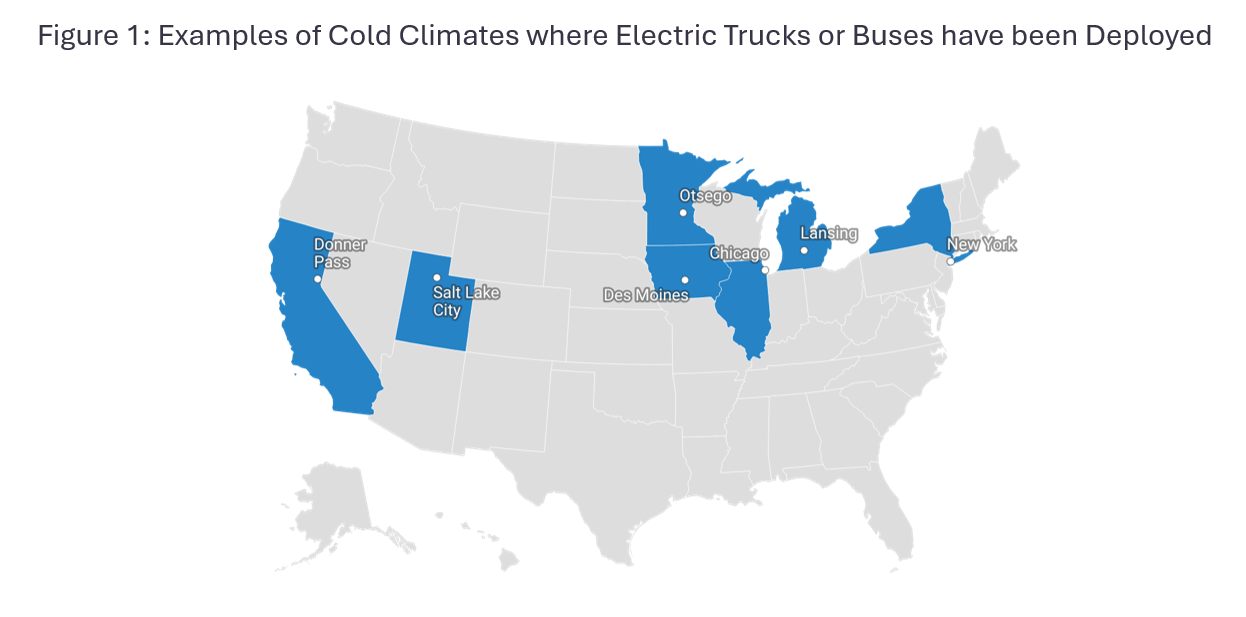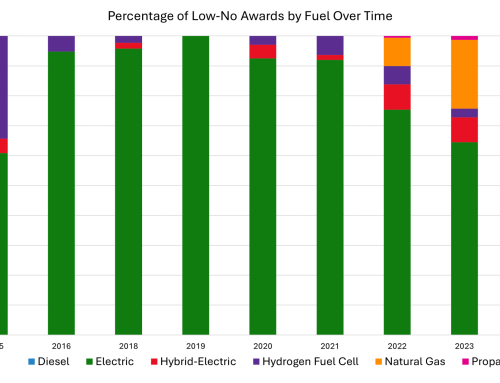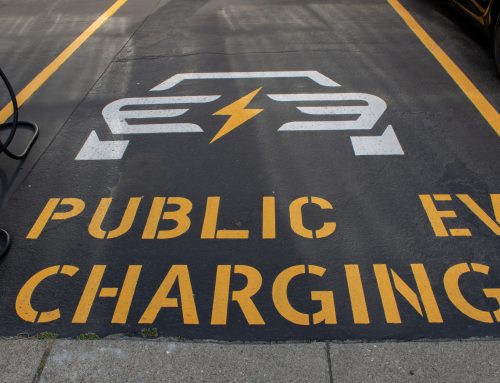
|
Electric trucks and buses are a nascent technology, and their benefits for public health and the climate are profound. However, concerns about their performance during cold weather have been top of mind for those leading deployment efforts. In particular, cold weather reduces the typical range of a battery-electric vehicle. To address this valid issue, my colleagues Kelsey Blongewicz and Lucy McKenzie recently published a wintry fact sheet detailing the strategies fleet operators have employed to counteract cold weather range loss. In this fact sheet, the authors highlight four technological advances and strategies that have proven on-the-ground success for fleets combatting cold weather range loss. Pre-heating the interior and battery The fact sheet highlights testing exercises by electric truck manufacturers that have proven that vehicle pre-heating can help counteract range loss due to cold weather. At Daimler’s testing facility in Northern Finland, where temperatures reach as low as -13 degrees Fahrenheit, the automaker tested two battery electric tractor-trailer semi-truck models in extreme cold weather conditions and found that heating the drivetrain and cab while the truck is charging curbed range loss. Similarly, Volvo conducted comprehensive tests on long-range heavy-duty electric trucks near the Arctic Circle in Sweden. At the conclusion of these tests, the automaker found that all systems were able to adequately function, even in extreme winter conditions. Volvo later launched the “Ready to Run” feature, which allows the operator to remotely pre-heat the truck via an app, allowing the drivetrain and cabin to reach an optimal temperature while charging to reduce range loss on the road. Finally, another success story comes from the city of Des Moines, Iowa, where local electric truck operators reported that pre-heating their vehicles while charging counteracted range loss. Des Moines is now scaling up their EV fleet. Effective strategic planning Fleet operators and transit authorities have found ways to strategically optimize their electric trucks’ performance during cold weather conditions. The fact sheet details a few case studies, but I’ll point out the Chicago Transit Authority (CTA) as someone who has grown up near the chilly Windy City. Chicago operates a fleet of public electric buses, and during winter, the buses start with 100 miles of range and can complete six one-way trips before depleting half of their battery. The CTA has built time into bus schedules for charging to address cold weather range loss and have installed fast charging sites at both ends of many bus routes to allow time for recharging. Advances in heating efficiency The fact sheet describes technological advances that have improved heating efficiency and therefore help mitigate range loss during cold weather conditions. A key technological advancement has been replacing resistance coil heaters with heat pumps in electric trucks, which are three times more efficient and can, therefore, direct more of the vehicle’s battery energy to driving. Sticking with Chicago, the CTA found that newer electric buses have longer ranges, and those that come equipped with heat pumps are more efficient. Automakers are also working on ways to decrease the energy spent on heating batteries, such as Rivian who is working on building a battery that is designed to “self-heat.” In theory, this battery uses energy from the inverter and the motor to maintain optimal drivetrain temperatures, instead of relying on an internal heater. Increasing vehicle ranges As electric truck technology continues to advance, we’re seeing substantial range increases in a short period of time. In 2019, the average advertised range of zero-emission heavy-duty truck models was less than 180 miles. Advertised ranges of electric trucks increased to 250 miles in 2021, and now 300 miles in 2023. Cold weather range loss is poised to be less of a concern as electric truck ranges increase. Read more about the case studies described in this fact sheet here. |


